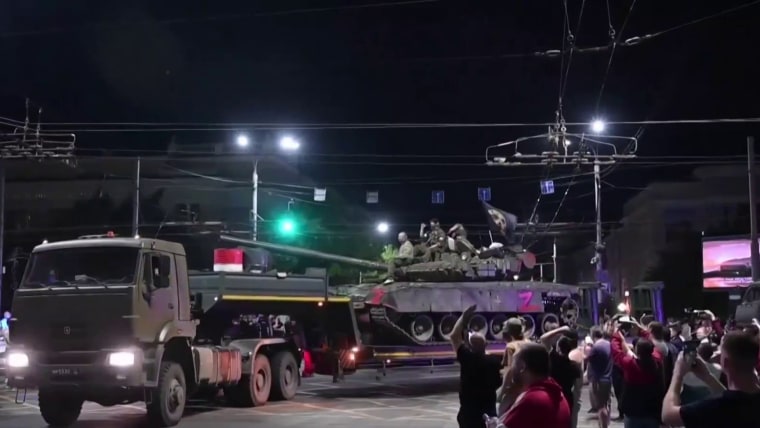HONG KONG — China has expressed support for Russia’s efforts to maintain national stability following a failed mercenary uprising that posed a brief but unprecedented challenge to Russian President Vladimir Putin’s regime.
Russian Deputy Foreign Minister Andrei Rudenko was in Beijing on Sunday, a day after Yevgeny Prigozhin called off an advance on Moscow by his Wagner Group forces and agreed to leave for Belarus in exchange for the charges being dropped.
“The Chinese side expressed its support for the efforts of the leadership of the Russian Federation to stabilize the situation in the country in connection with the events of June 24, and reaffirmed its interest in strengthening Russia’s unity and prosperity.” , said the Russian ministry. of Foreign Affairs said in a statement afterwards.
Rudenko and Chinese Foreign Minister Qin Gang discussed China-Russia relations and “international and regional issues of common concern”, the Chinese Foreign Ministry said on its website.
Rudenko’s trip had not been previously announced, according to the Associated Press, and it was unclear when he arrived in Beijing or whether his trip was related to the uprising.
The Chinese Foreign Ministry later described the rebellion as “Russia’s internal affair”.
“As Russia’s friendly neighbor and comprehensive strategic coordinating partner for the new era, China supports Russia in maintaining national stability and achieving development and prosperity,” a spokesperson said Sunday. anonymous in a press release.
The statement did not mention Putin or Prigozhin.
Russia and China are not formal allies, but Putin and Chinese President Xi Jinping, who call themselves “dear friends”, declared a “limitless” partnership during a meeting in Beijing a few weeks before the Russian invasion of Ukraine in February 2022.
China refused to condemn Russia’s actions in Ukraine or even describe them as an invasion, and repeated Russian talking points defending the war. But he has also expressed concern about the humanitarian situation and called for peace talks, presenting his own 12-point plan earlier this year and sending a representative to Ukraine and Russia last month in a mediation effort.
In March, three US officials said new intelligence suggested China was considering sending artillery and munitions to Russia. China has vowed it will not sell arms to any side in the war in Ukraine – a point reiterated by Secretary of State Antony Blinken during his trip to Beijing last week.
Ukraine and its allies such as the United States have criticized Beijing’s peace plan as too favorable to Russia and said there could be no negotiations until Putin withdrew his troops.
In an emergency address to the nation on Saturday amid the Wagner crisis, Putin said his government would “protect our people and our state from any threat, including internal betrayal.” But US military analysts say the Russian president has been weakened by the revolt and his hold on power could still be in jeopardy as he seeks to retain support at home and abroad.
Putin “has real problems,” retired General Barry McCaffrey told NBC News, which could influence policy in China and other countries that have tried to portray themselves as neutrals in the Ukraine conflict.
“The Chinese, the Indians, the Brazilians, the Middle East are trying to reassess the likelihood of Putin surviving even longer,” he said.
Others say opponents of Putin should be careful what they wish for, arguing that the prospect of defeat could push the Russian president to use tactical nuclear weapons, a threat that President Joe Biden and others qualify as “real”.
“After the Wagner incident, the war will be bloodier and Putin will be more determined,” said Wang Yiwei, director of the Center for International Affairs Research at Renmin University of China in Beijing.
If the Russian government were to collapse, “it will only make the situation more dangerous,” he said.
Dusa Gambrill contributed.


